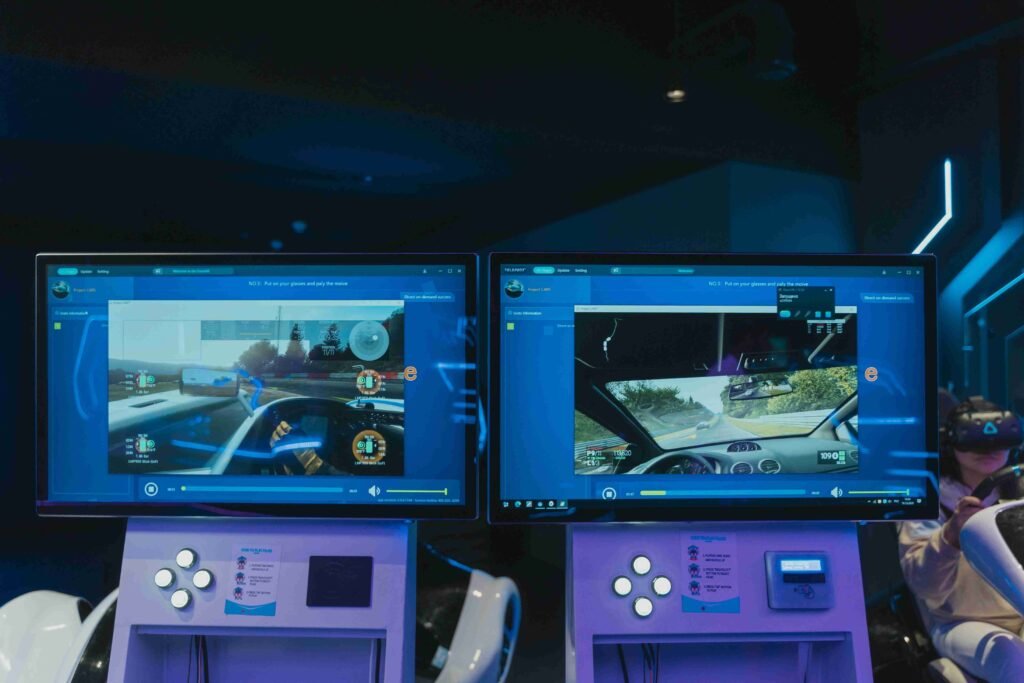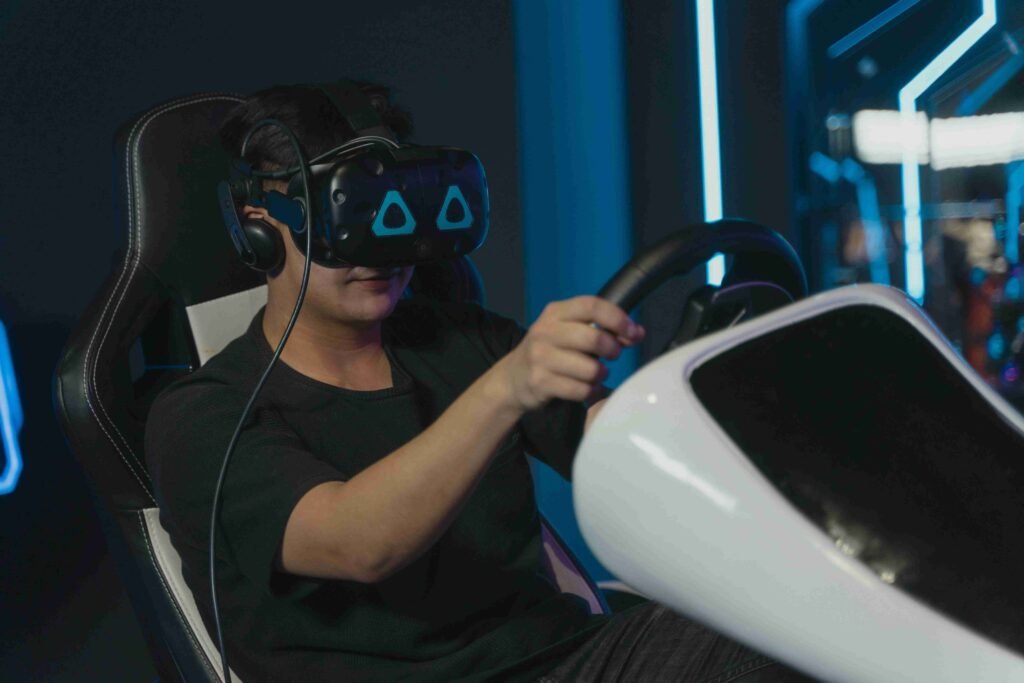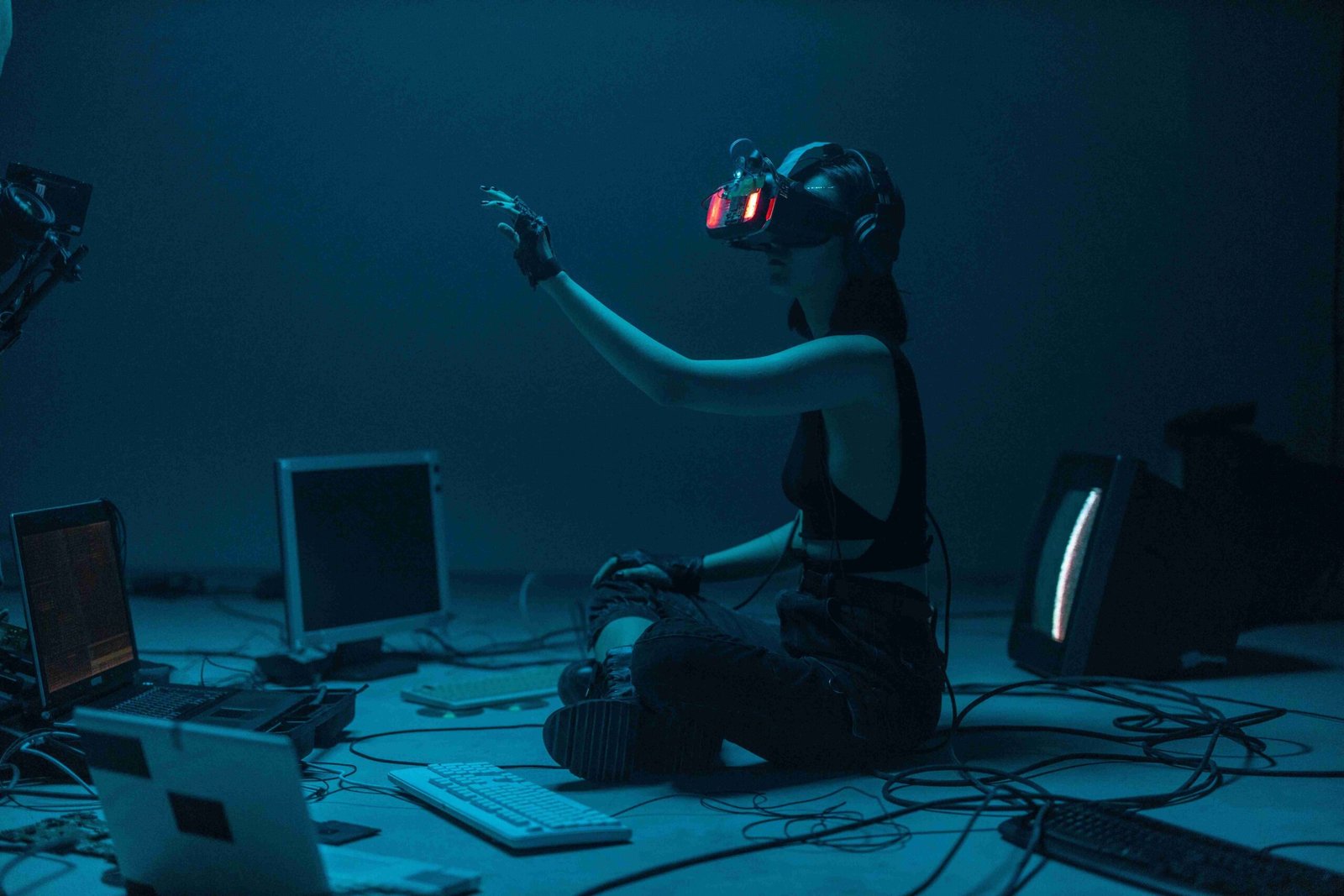Esports is a rapidly growing industry, and technology is at the forefront of driving this change. From virtual reality to artificial intelligence, technology is being used in new and exciting ways to enhance the esports experience for players and fans alike. Imagine yourself in a virtual arena, feeling as if you are truly inside the game, with the ability to look around and interact with the environment in a way that is not possible with traditional gaming.
The use of AI-powered coaches, commentators and in-game AI provides personalized training, real-time analysis, and a more challenging and dynamic gameplay experience. In this blog, we will dive into the exciting world of technology in esports and explore how it is revolutionizing the way we experience competitive gaming. So, gear up and get ready for an immersive journey into the future of esports.
Virtual Reality in Esports
Virtual reality, or VR, is a technology that allows users to experience a computer-generated environment as if they were physically present in it. In esports, VR is being used to create a more immersive gaming experience for players and fans.
One of the most notable examples of VR in esports is the VR Challenger League, a global esports league that features VR games like Echo Arena and Onward. These games are played on VR headsets, which provide players with a more realistic and immersive gaming experience. By using VR, players can feel as if they are truly inside the game, with the ability to look around and interact with the environment in a way that is not possible with traditional gaming.
Another way VR is being used in esports is through the use of VR streaming. This allows fans to watch esports matches in a virtual environment, giving them a more immersive viewing experience. This is particularly popular in games like first-person shooters and racing games, where the player’s perspective is crucial to the gameplay.
Many companies are developing VR streaming platforms that allow fans to watch esports matches in a virtual environment, giving them a more immersive viewing experience. This can be done through VR headsets, or even through smartphones and tablets.
VR also has the potential for creating new opportunities for sponsorship and advertising in esports, as brands will have the ability to create their own virtual spaces, where they can showcase their products, and interact with the audience in a more engaging way.

Artificial Intelligence in Esports
Artificial intelligence, or AI, is a technology that allows computers to simulate human intelligence. In esports, AI is being used in a variety of ways to enhance the gaming experience for players and fans.
One way AI is being used in esports is through the use of AI-powered coaches. These coaches use machine learning algorithms to analyze player data and provide personalized training and coaching for players. This can help players improve their skills and performance in the game, leading to a more competitive and exciting esports experience. AI-powered coaches can also help players identify weaknesses in their gameplay and develop strategies to improve their performance.
Another way AI is being used in esports is through the use of AI-powered commentators. These commentators use natural language processing to analyze the game and provide real-time commentary, just like human commentators. This can provide a more engaging and informative viewing experience for fans, as the AI-powered commentator can provide insights and analysis that would be difficult for a human commentator to provide.
AI is also being used to improve the spectating experience in esports, by providing real-time statistics and analysis of the match, as well as providing interactive tools for fans to engage with the match and players. For example, AI-powered systems can be used to provide instant replay analysis, giving fans a deeper understanding of the match and the strategies used by players. This can help to make esports more accessible to new fans, as well as provide more in-depth analysis for hardcore fans.
Additionally, AI can be used to create more accurate and detailed match predictions, providing fans with a more engaging and interactive experience. AI-powered systems can analyze player data, past match results, and other factors to make predictions about the outcome of a match. This can be used to create betting systems, fantasy leagues, and other interactive experiences for fans.

In-Game AI
AI is also being used to create more realistic and engaging in-game experiences for players. For example, AI-powered characters and enemies can be used to create more challenging and dynamic gameplay. AI-controlled characters can react to player actions, create new challenges, and provide a more immersive gaming experience. In some games, AI characters can even adapt to the player’s playstyle, making the game more challenging and engaging for the player.
AI is also being used to improve matchmaking and create more balanced and fair matches. AI-powered matchmaking systems can analyze player data and match players of similar skill levels together, creating more competitive and enjoyable matches for everyone. This can be done by analyzing factors such as the player’s win-loss ratio, K/D ratio, and other performance metrics. By matching players of similar skill levels, the game becomes more enjoyable for everyone, and the chances of a one-sided match are minimized.
For instance, in the game “Rainbow Six Siege”, the matchmaking system is based on the players’ skill level, and their playstyle, this ensures that the players are matched with others of similar skill, thus creating a fair and enjoyable match for everyone.
Final Words:
Technology is playing a significant role in shaping the future of esports. From virtual reality to artificial intelligence, technology is being used in new and exciting ways to enhance the esports experience for players and fans alike. With the use of VR, players can feel as if they are truly inside the game, and AI-powered coaches, commentators, and in-game AI can provide personalized training, real-time analysis, and a more challenging and dynamic gameplay experience.
As technology continues to advance, we can expect to see even more innovative and exciting uses of technology in esports. It will be interesting to see how these new technologies will change the way we interact with esports and how they will shape the future of competitive gaming.


